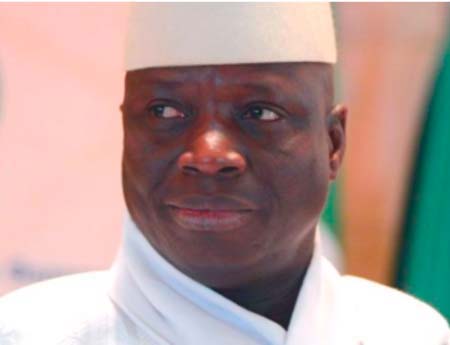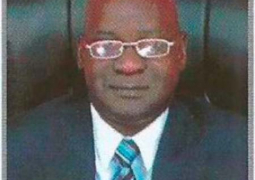
|
President Yahya Jammeh on Tuesday evening declared a state of public emergency throughout The Gambia, entrusting the security forces with the maintenance of “absolute law and order”. |
In a televised broadcast over the state television, GRTS, Jammeh, however, said: “During this state of public emergency, civil liberties are to be fully respected.”
Through the state of emergency, the Gambian leader immediately banned everyone in The Gambia “from any acts of disobedience to the laws of The Gambia, incitement to violence and acts intended to disturb public order and peace”.
He said the move to declare a state of emergency was prompted by the fact that allowing the continuation of the current situation in the country “may lead to a state of public emergency”.
The current political situation in the country follows Jammeh’s total rejection of the results of the 1st December presidential election, which Adama Barrow, who leads a coalition of eight opposition parties, was declared winner.
Barely a week after conceding defeat, Jammeh rejected the result in its entirety and called for a new election.
The Gambian leader said the declaration of state of emergency was necessitated by “the unprecedented and extraordinary amount of foreign interference” in the 1st December 2016 presidential elections.
He said the foreign interference “in the internal affairs of The Gambia” has created an unwarranted hostile atmosphere threatening the sovereignty, peace, security and stability of the country.
President Jammeh said the declaration was also necessitated by the absconding of the chairman of the Independent Electoral Commission.
The chairman, Alieu Momarr, is one of the four parties against whom Jammeh and his ruling APRC party filed three petitions at the Supreme Court of The Gambia challenging the result of the presidential election.
The session of the court on Monday could not determine the petitions because the court could not be empanelled.
As a result, Chief Justice Emmanuel Fagbenle adjourned the case to May or November 2017, when the judges from Nigeria and Sierra Leone appointed at the Supreme Court in Banjul are expected in the country.
Also, the APRC injunction seeking an order of the Supreme Court to block the inauguration of president-elect Barrow could not be determined, as the Chief Justice recused himself from the matter.
The Gambian leader cited the inability of the Supreme Court to convene as a result of the non-appearance of the judges to hear the election petitions as another reason for the declaration of the state of emergency.
According to him, the non-coming of the judges was mainly influenced by foreign powers and their agents, in an effort to thwart the constitutionally mandated process.
He said this was manifested in a captured audio recording of the absconded chairman of the IEC discussing how plans have been made to ensure the Supreme Court judges will not sit on time to hear the petitions against “the flawed results” he published.
Still another reason for the declaration, said President Jammeh was “the current state of fear and confusion created by some of the political players in the country, which could lead to the breakdown of law and order.”
“The need to prevent a constitutional crisis and power vacuum, pending the determination of the petitions at the Supreme Court, and the application for an injunction against swearing in Mr Adama Barrow or anybody as president of the Islamic Republic of the Gambia, until the Supreme Court decides on the 1st December 2016 Presidential Election results,” he said was also another reason for his declaration of a state of public emergency in the country.
Meanwhile, National Assembly members yesterday extended the term of the National Assembly and that of the President for another three months. Each of both terms, which should end today, is five years.


